Are Weighted Blankets Safe for Cats? (Nasty Potential Risks)
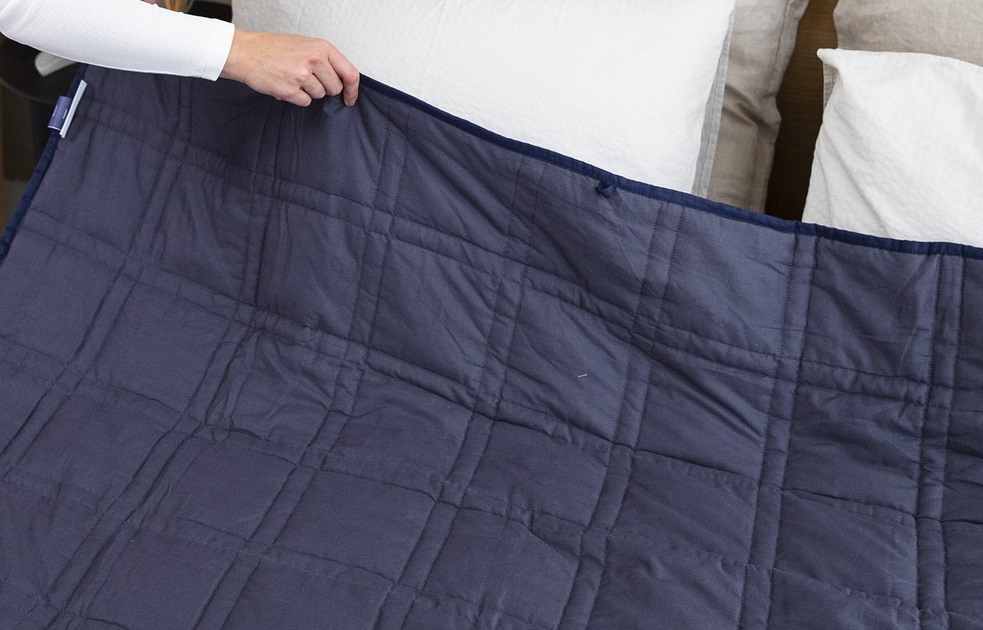
Worried cat lover.
Ever wondered if snuggling your furry friend under a cozy weighted blanket is a purr-fect idea or a potential hazard? 😺
Don't fret, I feel you...
Let's uncover the truth together, shall we?
Potential Risks of Using a Weighted Blanket for Cats
Weighted blankets for cats can help, but there are also risks you should know about. Here's a list of the potential dangers:
- Cats, especially older or arthritic ones, may have trouble moving with the weight of a blanket on them. It could hurt or make them uncomfortable.
- The blankets have small beads that cats who like chewing things might swallow. This can cause blockages in their digestion, and they'll need a vet right away.
- Some cats have this thing called pica, where they eat stuff that isn't food. These cats might try to eat the blanket's fabric, which is bad for them. A vet needs to get involved quickly.
- The blankets are too big and heavy for cats to sleep under. But if you keep an eye on them, you can use the blanket for calming purposes.
- Not all cats will like being weighed down by a blanket. Some might get stressed out or anxious. You should pay attention to how your cat acts and whether it seems comfortable.
Knowing these risks will help you decide if a weighted blanket is safe and good for your cat. 😺
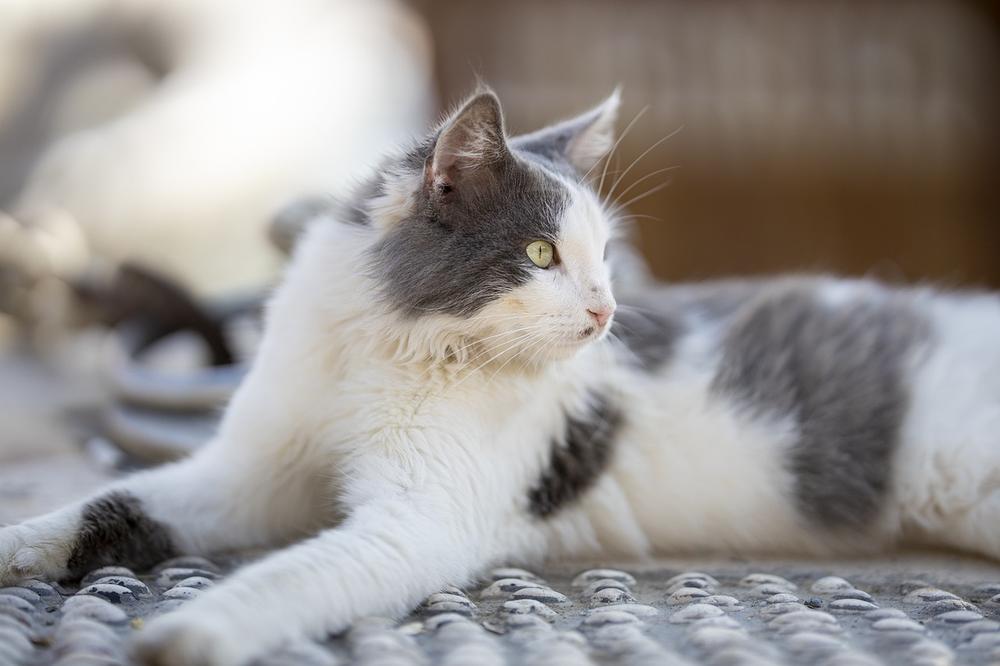
In addition to being aware of the potential risks associated with using a weighted blanket for cats, I want to emphasize the importance of considering what your feline friend consumes.
If you're curious about whether tap water is safe and if there are alternative options available, I invite you to explore my informative article: Can Cats Drink Tap Water.
Discover the insights and solutions that can provide peace of mind for you and your precious companion.
Choosing a Safe Weighted Blanket for Your Cat
When it comes to choosing a safe weighted blanket for your cat, there are a few important factors to consider.
- Opt for blankets specifically designed and marketed for pets: These blankets are made with nontoxic materials that are safe for your cat to be in contact with. Avoid using regular weighted blankets meant for humans, as they may contain harmful substances.
- Consider your cat's body weight: It is recommended to choose a blanket that weighs less than 10% of your cat's body weight. This will help prevent any respiratory discomfort or difficulty breathing.
- Place the blanket on top rather than underneath: For cats and puppies, it is best for them to be on top of the weighted blanket rather than underneath it. This allows them to easily move away if they become uncomfortable or need to readjust their position.
- Ensure suitability for cat's size and weight: The blanket should be suitable for your cat's size and weight to ensure it is not too heavy or restrictive. A blanket that is too large or heavy can cause discomfort and potentially harm your cat.
- Choose cat-safe materials: Make sure the blanket is made of non-toxic fabrics that are safe for cats. Avoid blankets made of chemicals that could be harmful if ingested or cause skin irritation.
Ensure your cat stays safe and comfortable while using a weighted blanket by following these recommendations. Your feline companion will express their gratitude!

But wait, there's more to know about how weighted blankets can benefit our feline friends.
Are you ready to discover the incredible ways these blankets can improve your cat's well-being?
Let's dive in and uncover the hidden benefits!
Pros, Cons, and Benefits of Using Weighted Blankets for Cats
Weighted blankets are amazing for stressed-out cats. If your furry friend is constantly meowing or pacing around, you should know that using weighted blankets can help reduce these stress-related behaviors.
These blankets provide a comforting and secure feeling for your cat, just like it does for you when you snuggle up under a cozy blanket.
It's the perfect way to calm their nervous system and improve their sleep.
Who wouldn't want their cat to have a good night's sleep, right?
If your cat suffers from anxiety, a weighted blanket could be the answer you've been searching for.
These special blankets offer just the right amount of sensory stimulation to relax your furry pal. Plus, cats already love blankets, especially during cold winter months.
So why not give them the added comfort of a weighted blanket?
It might bring them some much-needed relief from their anxiety symptoms.
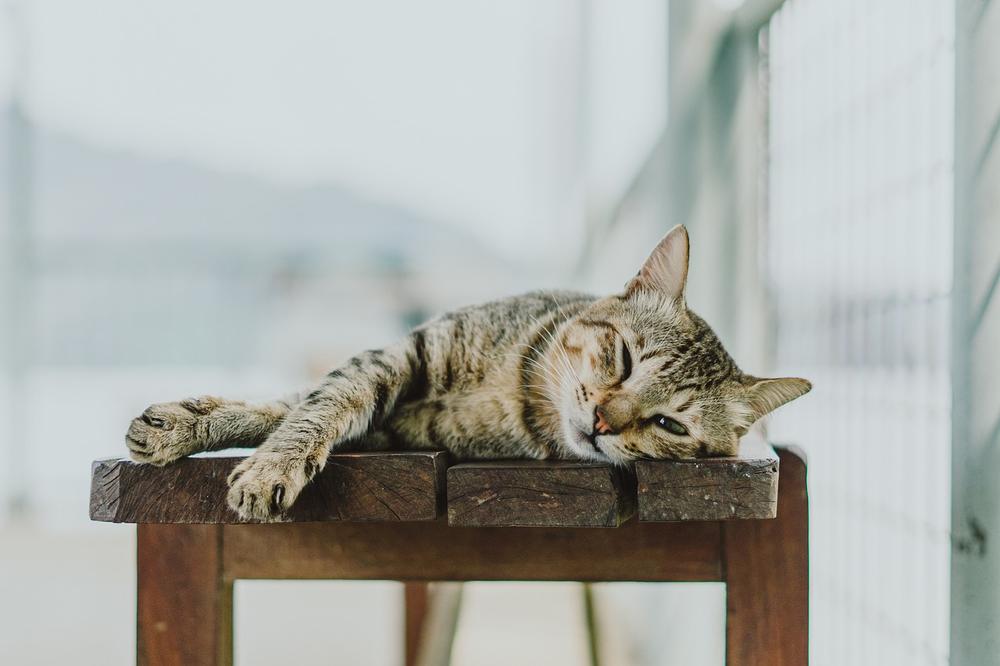
You know how snuggling up under a cozy blanket makes you feel more relaxed, right?
Well, guess what?
Cats experience the same thing!
Weighted blankets not only reduce stress-related behaviors, but they also promote relaxation in cats.
The gentle pressure they provide on your cat's body can make them feel at ease and comfortable.
So if your cat is feeling anxious or stressed, why not try using a weighted blanket?
It could be the purr-fect solution for your furry friend.
And now that you know the benefits of using weighted blankets for cats, let's explore how to introduce them to your furry friend.
I recommend gradually introducing the blanket by placing it near their resting areas and allowing them to become familiar with its presence.
This way, they can adjust at their own pace and feel comfortable with the idea of interacting with the blanket...
Tips on Introducing Your Cat to a Weighted Blanket
Introducing your cat to a weighted blanket's no cakewalk.

But, fear not—here are some handy tips to make it easier for both of you:
- Plop that blanket near their usual hangout spots. This lets 'em get used to it without feeling pressured.
- Let them do their thing. Don't rush 'em! Give 'em time to sniff, paw, or even snooze on it if they want. It'll help build trust and lessen any anxiety.
- Make positive experiences a thing. When they're near or on the blanket, offer treats, toys, or some sweet petting action. That way, they'll start linking the blanket with good times.
- Respect their wishes. If your feline friend seems stressed or avoids the blanket like the plague, back off. Boundaries matter. Create cozy alternatives for 'em instead.
Every kitty is different.
Stay patient and understanding as you introduce 'em to the world of weighted blankets.
How to Properly Clean and Care for Your Cat’s Weighted Blanket
When it comes to cleaning and caring for your cat's weighted blanket, there are a few things you should bear in mind. Here are some helpful tips:
- Spotclean any urine stains promptly using petsafe enzymatic cleaners. These cleaners break down odors and eliminate potential triggers for marking behavior.
- Avoid machine washing the blanket to prevent damage. Instead, apply soap and water or use an enzyme laundry stain remover specifically designed for urine stains.
- Follow the cleaning instructions provided for the blanket to ensure proper hygiene and maintenance.
- If there are other stains or spills on the blanket, handle them accordingly based on the specific type of stain (e.g., food, dirt).
- Regularly check the blanket for signs of wear and tear, such as loose stitching or damaged seams. Repair or replace these areas as needed.
- Consider using a cat-friendly fabric freshener or spritz to keep the blanket smelling fresh between washes. 😀
To ensure your cat's weighted blanket remains clean, cozy, and well-preserved, adhere to these guidelines for an extended duration.
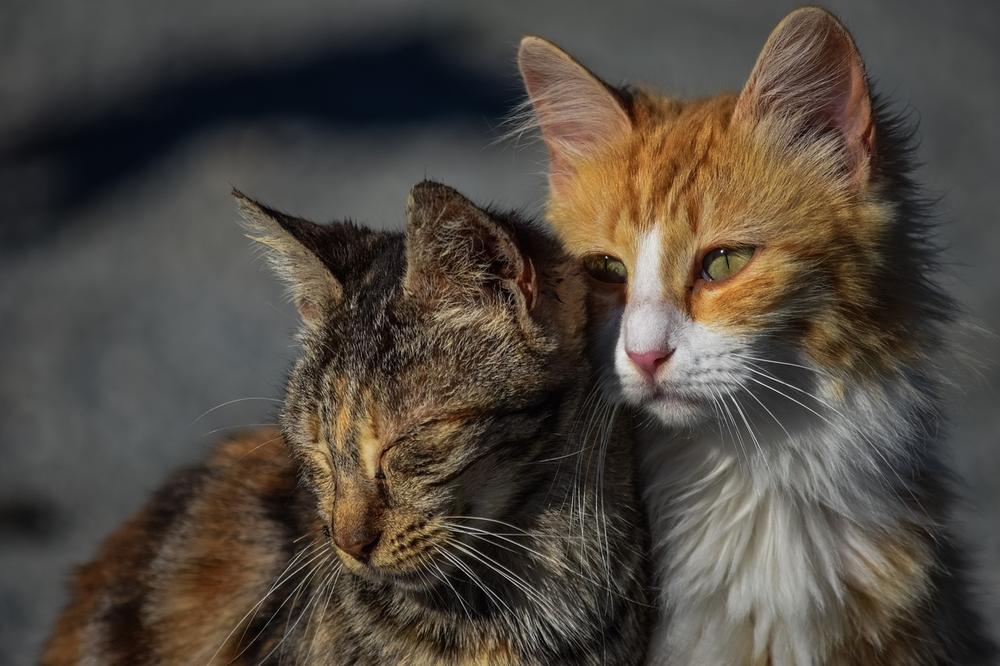
And now, let's explore some alternative options that could provide comfort and security for your cat without the added weight of a traditional weighted blanket...
Alternatives to Weighted Blankets for Cats
Choose a cozy bed for your cat
If you don't think a weighted blanket is the best choice for your kitty, there are other options that can give them a cozy and secure feeling.
Why not try getting them a cute little cat cave or tent-shaped bed?
These snug designs create a safe space where your cat can feel totally at ease.
Explore dog-specific sensory items
Even though weighted blankets made for humans might not be suitable for cats, guess what?
There are actually some alternatives designed specifically for dogs that could work nicely for your feline friend too!
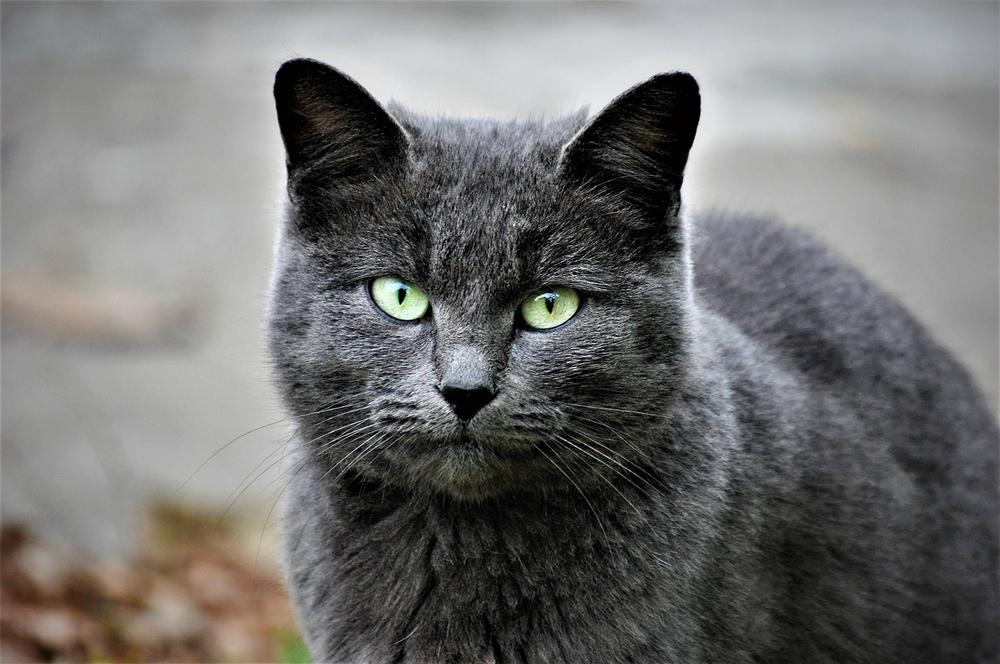
Items like vests and wraps offer a similar comforting and secure sensation for pets like yours.
Look into practical alternatives for cats
While there aren't any weighted blankets made specifically for cats, don't worry. You can still find practical options that can help your cat manage fear or anxiety.
Consider trying out vests or wraps, which can make your little fluffball feel secure and relaxed. These alternative sensory items can really help reduce stress in your furry companion and create a comforting environment.
It's super important to consider your cat's specific needs when choosing alternative options. Every kitty is unique and may have different preferences, so take the time to observe their responses and find the solution that works best for them.
But did you know that cats may actually scratch on weighted blankets to mark them with their scent, creating a familiar and comforting environment?
In the next section, we'll dive deeper into this instinctual behavior exhibited by many cats and discuss important precautions you should take to ensure the safety of your furry friend.
Trust me, you won't want to miss it!
Why Is My Cat Scratching Weighted Blanket?
Why your cat scratches on your weighted blanket:
- Your cat is marking its territory, leaving its scent and making a cozy place for itself.
- Cats scratch to stretch muscles and reduce stress, and the textured surface of the blanket satisfies this need.
- The weighted blanket gives a sense of security and comfort, so scratching can be an attempt to create an even cozier sleeping spot.
But be careful with the fabric!
Some fabrics easily fray or have loose threads that your cat could swallow, posing health risks. Choose a durable and cat-friendly material for the weighted blanket.
If you notice excessive scratching or any signs of discomfort, consult your vet.
They'll give guidance and recommendations to keep your furry friend safe and happy. 😉
Pay attention, because here's the deal: Further down the blog post, I'll provide information about why your cat may be licking the weighted blanket. So keep reading to gain a better understanding of this behavior and how to address it.
Now, you may be wondering why some cats view blankets as preylike objects and how this can lead to attacking behaviors.
It's an instinctual response that traces back to their playful kitten days.
But here's the interesting part...
Why Is My Cat Attacking My Blanket?
Cats attack blankets due to their natural hunting instincts. It may stem from their playful kitten days when they honed their fighting skills with soft objects. Engaging in interactive play sessions before bedtime can redirect their attention and provide a healthy outlet for their hunting desires.
Ever wondered why your cat becomes a blanket-attacking ninja at night?
Let's delve into this mysterious phenomenon.
Some cats see blankets as prey, igniting their hunting instincts and causing them to pounce like it's the wild savannah.
It's totally normal behavior for these little furballs.
But why do they choose YOUR blanket?
Well, my friend, it may go back to their playful kitten days. They honed their fighting skills with soft objects - just like your blanket. Now, even as adults, they can't resist swatting at the sumptuous fabric.
However, don't let your favorite bedtime blanket turn into a battleground!
You can defuse this hilariously ferocious fight with strategic moves.
Before sleep, engage in interactive play sessions with your cat.
Make them work up a sweat chasing toys or attacking feather wands.
This will provide your furry buddy with a healthy outlet for their hunting desires and redirect their attention from annihilating the blanket.
If peace is what you seek, shift their focus away from blanket attacks.
So next time, join in some cat combat exercises, and blanket battles will become history!
And now, let's explore another fascinating aspect of our feline friends' behavior...
Why do they sometimes lick blankets?
Why Does My Cat Lick the Blanket?
Blanket licking in cats is often a behavior rooted in their early kittenhood.
When these little furballs were surrounded by their mother, they would lick her for warmth and comfort. This self-soothing act allowed them to feel secure and snug, just like when mama cat was watching over them. As adults, whiskered wonders might transfer this comforting habit to blankets and other cozy materials.
So, don't be perplexed if you catch your feline friend indulging in some blanket licking - it's just their way of finding solace in the familiar, reassuring memories of snuggling with their loving mother.
Wrap-up
Key Takeaways:
- Weighted blankets can pose potential risks for cats due to their weight, making it difficult for them to move around.
- Cats that have a habit of chewing objects may be at risk of swallowing the small beads in weighted blankets, leading to digestive blockages.
- Signs of anxiety in cats, such as pacing, hiding, and urinating outside the litter box, may indicate a need for a weighted blanket.
- Cats exhibiting pica, the need to consume non-edible objects, should not use weighted blankets as ingestion of fabric can be hazardous.
- Weighted blankets should be less than 10% of a cat's body weight to avoid respiratory discomfort.
- Cats should be on top of the weighted blanket rather than underneath it.
- The weight of the blanket should be appropriate for the size and weight of the cat, ensuring it is not too heavy or restrictive.
- Use weighted blankets made of cat-safe materials, such as non-toxic fabrics.
- Weighted blankets offer deep pressure therapy that calms the nervous system and improves sleep for anxious cats.
- Introduce the weighted blanket gradually to your cat and respect their preferences if they don't enjoy it.
- Clean urine stains from a weighted blanket using soap, water, or enzyme laundry stain remover.
- Human weighted blankets may not be suitable for cats, but alternative sensory items such as vests and wraps can assist cats in managing fear or anxiety.
- Be cautious of fabrics that can be easily swallowed if a cat scratches or bites the blanket.
- Engaging in playtime before bedtime can help redirect a cat's focus away from attacking the blanket.
- Some cats lick blankets as a comforting behavior developed during kittenhood.
And that wraps up today's article.
If you wish to read more of my useful articles, I recommend you check out some of these: Can You Bathe a Pregnant Cat, Are Philodendron Toxic to Cats, Why Is My Cats Nose Bleeding, Can Cats Get Fleas in the Winter, and Is Orange Essential Oil Safe for Cats
Talk soon,
-Sarah Davis